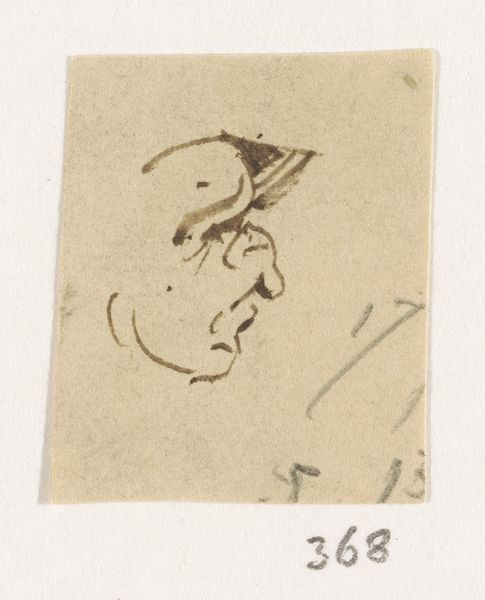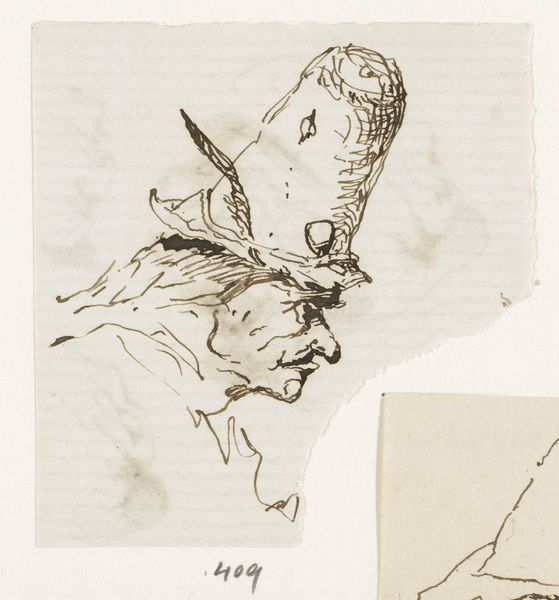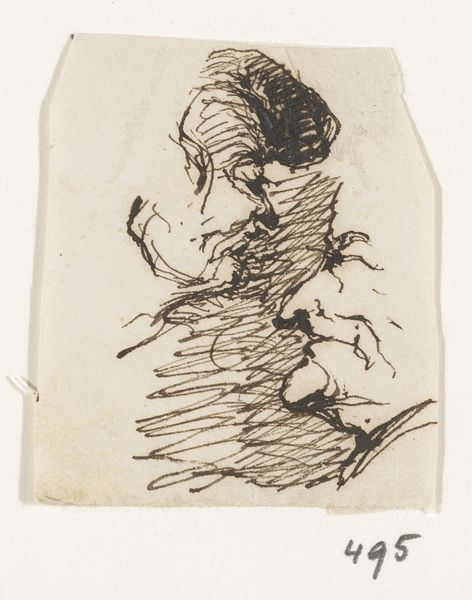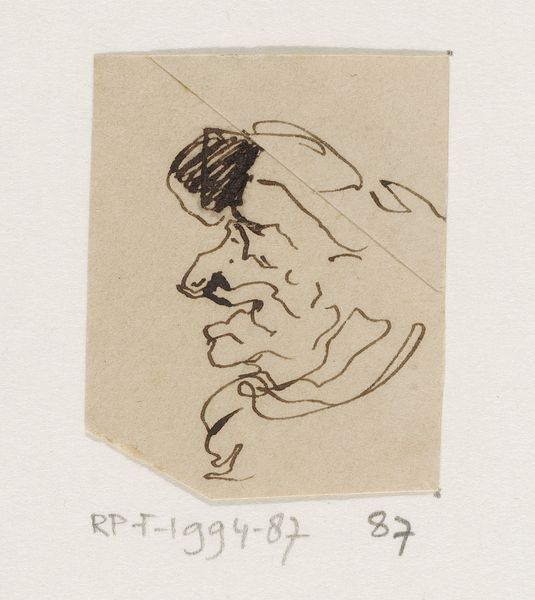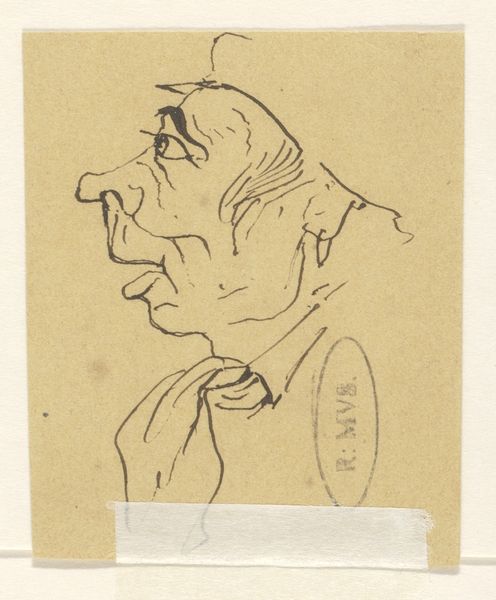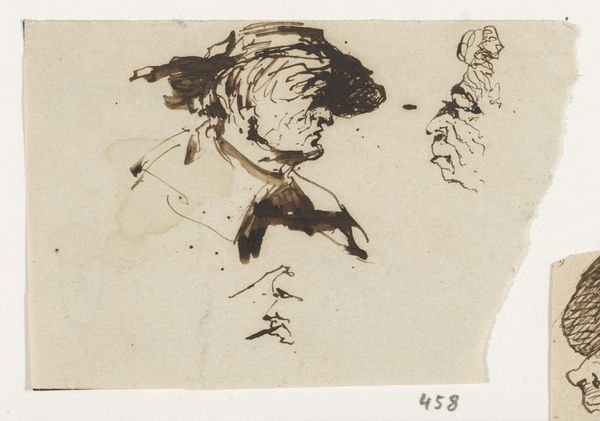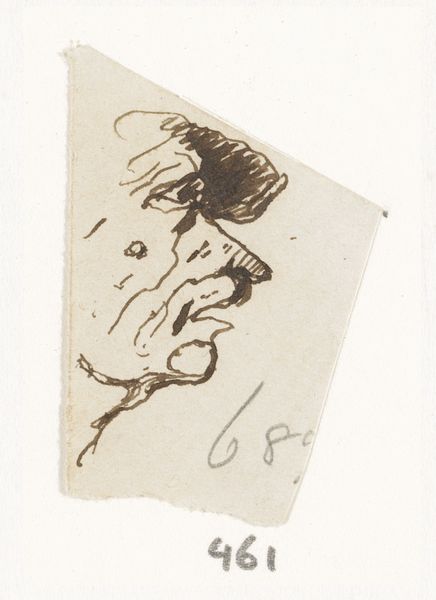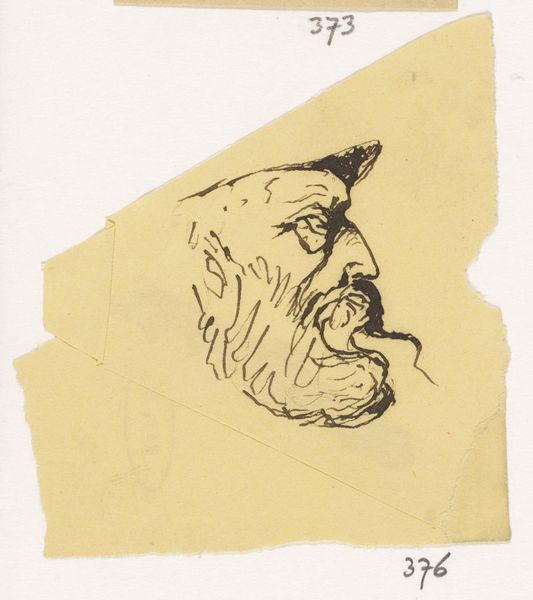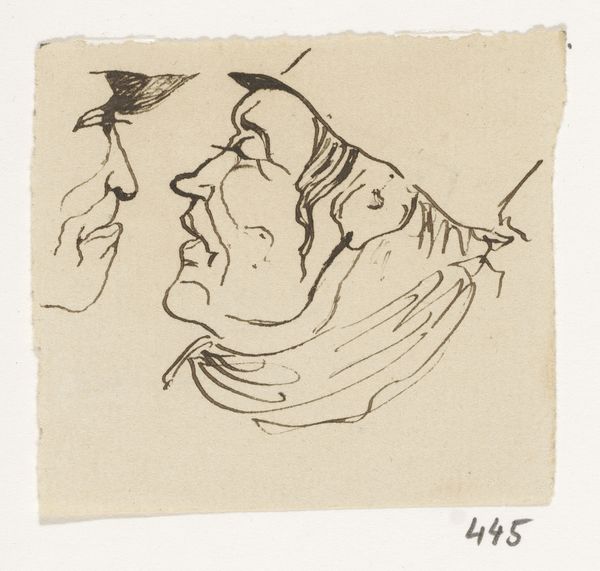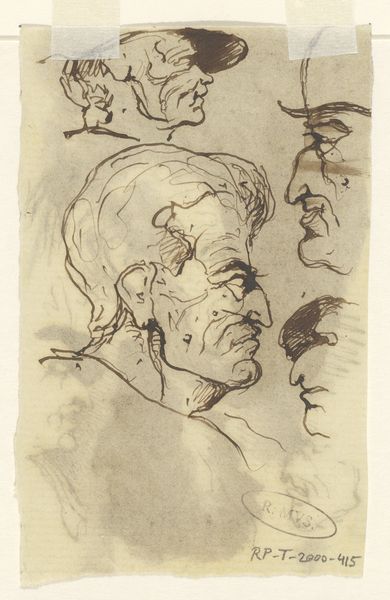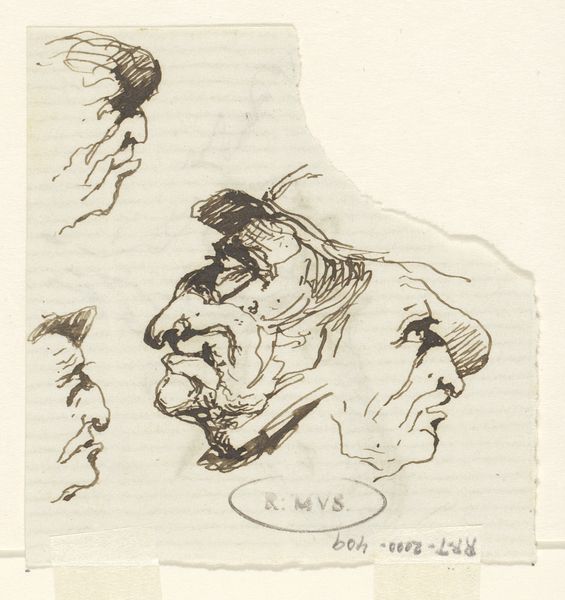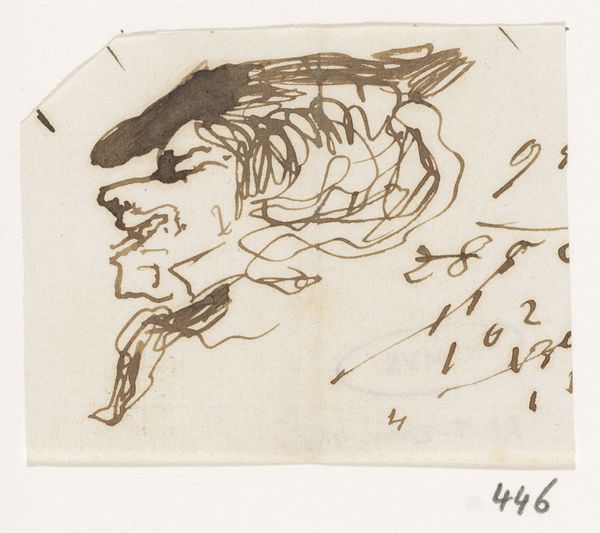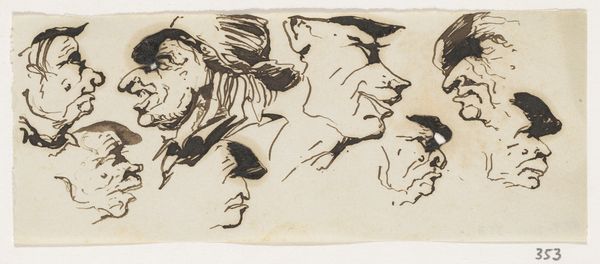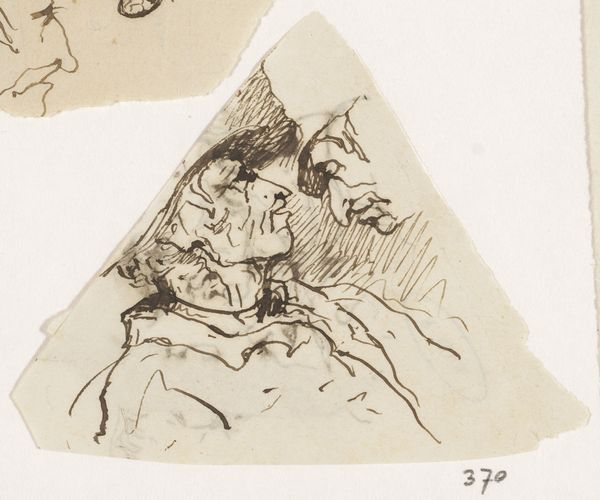
Kop van een man met slappe hoed, in profiel naar rechts 1819 - 1881
0:00
0:00
johannestavenraat
Rijksmuseum
drawing, paper, ink
#
portrait
#
drawing
#
amateur sketch
#
toned paper
#
light pencil work
#
quirky sketch
#
pencil sketch
#
figuration
#
paper
#
personal sketchbook
#
ink
#
ink drawing experimentation
#
romanticism
#
pen-ink sketch
#
line
#
sketchbook drawing
#
genre-painting
#
sketchbook art
Dimensions: height 44 mm, width 39 mm
Copyright: Rijks Museum: Open Domain
Editor: This is "Head of a Man with a Floppy Hat, in Profile to the Right" from sometime between 1819 and 1881, by Johannes Tavenraat. It's an ink and pencil drawing on paper, held here at the Rijksmuseum. It feels like a quick sketch, capturing a fleeting impression. What do you see in this piece? Curator: I see a glimpse into a particular cultural moment, filtered through the artist's perception. The hat itself speaks volumes. What does it tell us, not just about fashion, but about the social role the man might have occupied? Hats, historically, are markers of profession, class, and belonging. Is it nonchalant or does it look as if something is concealed? What cultural archetype is being presented, perhaps playfully subverted? Editor: That's interesting, I hadn’t considered the hat that deeply. I was more drawn to the lines – how quickly and efficiently he captured the man’s profile. Curator: Yes, and consider the Romantic period influence. There is often a kind of emotional narrative woven into these seemingly simple portraits. The looseness of the lines almost suggests vulnerability. Where does our mind go when looking at it? Is it perhaps mirroring internal states of contemplation, introspection? It begs to question our expectations. Editor: I see what you mean. It’s not just a physical likeness but maybe an attempt to capture a mood or even a social commentary. Curator: Exactly. By decoding the visual cues—the clothing, the expression—we begin to unlock layers of meaning about identity, society, and perhaps even the artist's own relationship to his subject and society. Editor: So it is all connected – the cultural context, the symbolism, even the technique. It makes the sketch far more than just a face on a page. Curator: Indeed. It is like peeling back layers of time, where we attempt to understand visual language, which can be quite profound.
Comments
No comments
Be the first to comment and join the conversation on the ultimate creative platform.
